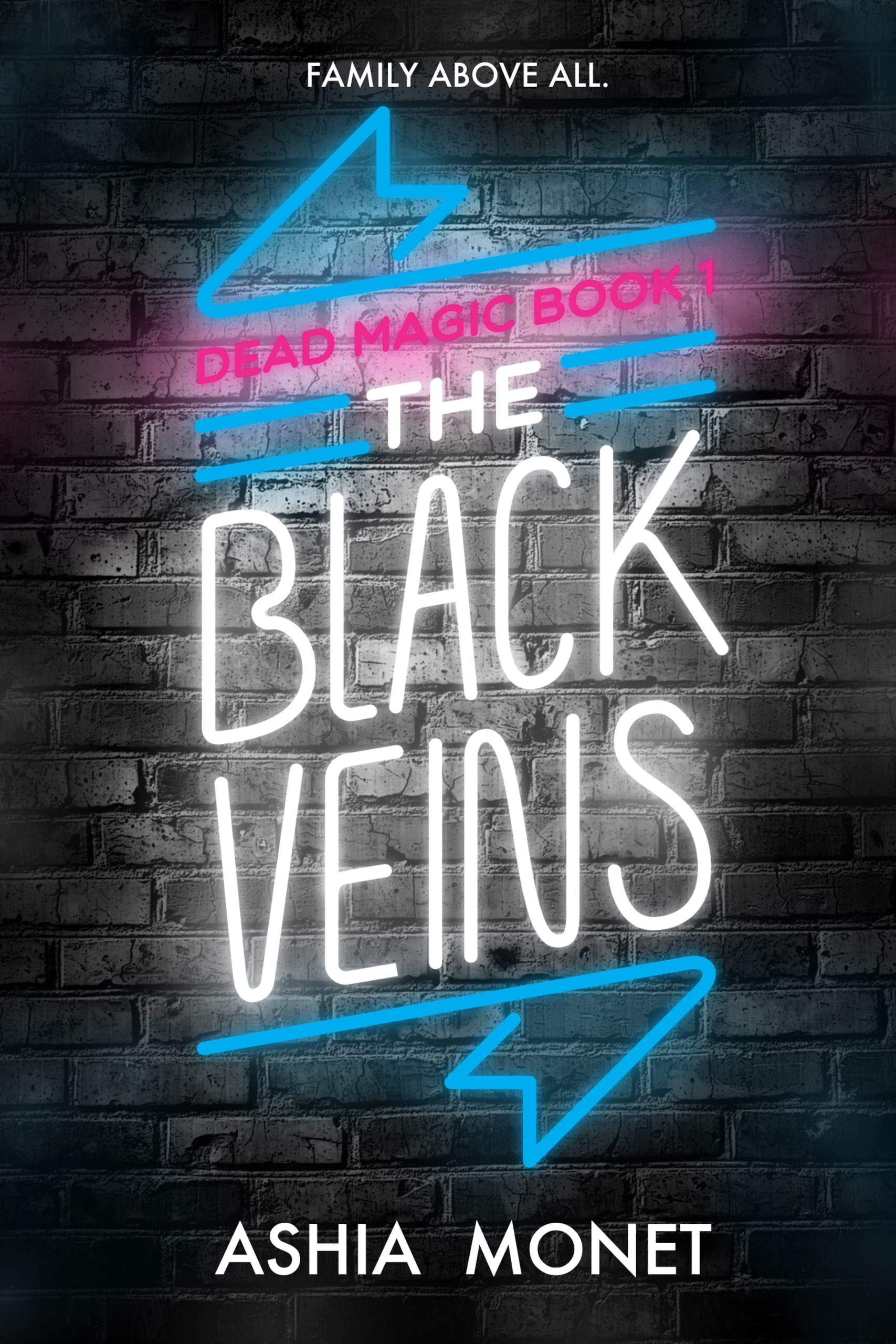"The Black Veins" Is an Epic Adventure Filled with Magic and Family
One mysterious night, Blythe Fulton, an Elemental Guardian, is magically compelled against her will.
After reaching out to the magical government known as the Black Veins, Blythe’s family is kidnapped and taken to the Trident Republic. In order to save them, Blythe must embark on a cross-country road trip to find and team up with the other six Elemental Guardians. Along the way, Blythe must discover the secret to unlocking her magical abilities, learn to be a leader and friend, and figure out the connection between her family’s kidnapping and the tensions between the Black Veins and the Trident Republic.

The thing I immediately liked about this book is the book’s main Black teen lead, Blythe Fulton. I especially enjoyed the juxtaposition of Blythe’s status as an Elemental Guardian in the magical world and her status as a Black girl in the real world (aka the “Common World”). Even though Blythe has yet to unlock her powers, being an Elemental Guardian allows her to be given protection because of how important the Guardians are. However, those who are Common (i.e., non-magic) still see Blythe as a Black girl, exotic one moment and criminal the next.
Blythe is awesome and relatable as person. She is so many things, among them bisexual, nerdy, resourceful, impulsive, and kind. One of the most touching examples of her kindness is when she explains friendship to Daniel, an Elemental Guardian who has lived a sheltered life: “Friendship is an art, like gardening or photography. It’s something you get better at with practice, and not everyone does it the same way. So don’t worry if you don’t get it now. It’ll happen.”
Blythe is … so many things, among them bisexual, nerdy, resourceful, impulsive, and kind.
The other Guardians have their own quirks and imperfections that will make you both enjoy them and yell at them. One who comes to mind is Cordelia Deleon, Guardian of the Mind and a haughty Chinese hacker who undergoes some major humbling. Another is Guardian of Time Storm Crane, a fat, Black vigilante hero who is kick-butt and initially single-minded in pursuit of her own goals. The only thing more interesting than the Guardians as individuals is the Guardians becoming a family.
Although each of the Guardians is recruited into Blythe’s mission in different ways and all have their own personal agendas, watching them grow close to each other is incredibly moving. These moments are especially memorable when they have time to catch their breath and be teenagers talking and having fun with each other. Much of the fun consists of dialogue between the characters, which is purely friendship, with only a little bit of flirting between some characters. It is refreshing to see queer characters in a book without a love interest, because queer friendships are just as important as queer romance.
Speaking of the dialogue, there is a lot of great stuff that is a mix of funny, comforting, and true to life. One of my favorite bits is when Blythe and Storm are complimenting each other. Blythe says, “I like you, for what it’s worth.” Storm replies, “I’m straight.” to which Blythe says, “I meant as a friend. You’re not even my type.” Storm says she’s insulted, and Blythe cheekily says, “Straight girls always are.” If this book ever gets adapted into a TV series or a film, I really hope they keep the banter and the downtime between the Guardians.
A final aspect of the book I enjoyed was the world-building. The concept of a world of magic hidden alongside the ordinary world is always interesting, and Monet does a good job of introducing readers to the world of the Elemental Guardians and magicians. From how magic is hidden from Common people to a magicians’ war to a forest that allows time travel, there is a lot for the fantasy reader to delight in. My personal favorite bit of world-building is “the Gilded Wardrobe,” a thrift store for magical goods.
From how magic is hidden from Common people to a magicians’ war to a forest that allows time travel, there is a lot for the fantasy reader to delight in.
There wasn’t much I disliked about The Black Veins. While the novel’s major antagonist certainly showed they were not to be trifled with, I found them a little boring. I was also interested in learning if magic affected modern technology like smart phones and social media, but the novel did not address this — though I admit my curiosity was mostly a personal one. Since this book is the first of the Dead Magic series, there is plenty of room for the world of The Black Veins to grow.
Overall, The Black Veins is an entertaining read, an epic adventure filled with magic and found family. If you love fantasy or have wondered what certain fantasy series would be like if they took place during the age of social media, give this book a try. It’s full of action and fun for teens, but anyone can enjoy it.

The Afro YA promotes black young adult authors and YA books with black characters, especially those that influence Pennington, an aspiring YA author who believes that black YA readers need diverse books, creators, and stories so that they don’t have to search for their experiences like she did.
Latonya Pennington is a poet and freelance pop culture critic. Their freelance work can also be found at PRIDE, Wear Your Voice magazine, and Black Sci-fi. As a poet, they have been published in Fiyah Lit magazine, Scribes of Nyota, and Argot magazine among others.

Top photo courtesy Caleb+Kaci Carson from Pexels.
